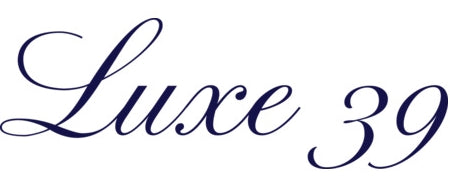
Is The Decision By Lush UK To Close Social Media Accounts An Example For My Velvet Cushion Company?
Share
Lush UK, the ethical handmade cosmetic company, announced yesterday on twitter that it was closing several of its social media accounts as it was "tired of fighting with algorithms" and did not want to "pay to appear" in newsfeeds.
LushUK has 202,000 Twitter followers and 569,000 on Instagram. More than 423,000 have liked the page on Facebook.
When I heard this announcement it stopped me in my tracks. It chimed so well with my own increasing doubts about social media, and Instagram in particular, and my questions about the time and effort I spend on the platform versus any traffic to my Luxe 39 website and ultimately any returns on all that time spent.

The initiation of the Instagram virgin
Before setting up my luxury velvet cushion company in the summer of 2018 I had consciously avoided social media. I had never felt comfortable putting pictures of my children and family on social sites which I didn't feel were secure. I kept in contact with friends and family pretty well in the old traditional ways and, though I may have missed out on a few conversations, in general it was a decision I was happy with.
But when I decided to set up my Luxe 39 business I was told by many people that I must get onto Instagram as: it's a visual platform and my velvet cushions and velvet pillows are a very visual product; It's great PR when you have a small marketing budget; it's less hostile a platform than twitter and more engaged than FB; you can grow your following organically over time without having to pay to advertise.
It seemed like a no-brainer approach to getting a start up business established.....and so my Instagram journey began. My favourite millenial was roped in to give me a crash course into the workings of Instagram (which is neither logical nor intuitive), and I was off!!
Immediately I realised that what I had assumed about social media was true. It is ADDICTIVE. You post, you wait for likes, you check back continually, you doubt the quality of your post, you check and edit the content, you check your phone the very first thing in the morning and the very last thing at night, you scratch your head at the totally unpredictable nature of popularity, you become an Instagram bore to anyone who'll listen, you gain followers but does it actually lead to sales??
After a few weeks the novelty began to wear off and the doubts and confusion set in. How do you get good at this platform? How do you grow into one of those huge accounts which posts pretty average pictures and content but gets thousands of likes? Is it worth paying for followers? What the hell are the silver bullets to success?
What even are algorithms???
The next phase of the Instagram journey began involving LOTS of reading. I started to do all the things you are told will lead to success (while avoiding those millions of companies who have popped up promising they can deliver the silver bullet of success). I waded through millions of blogs giving 'expert' advise on how to succeed on this platform. I whittled the advise down to the following Key Rules of Engagement:
Post regularly every day, not to little, not too much;Post at the time your followers are most engaged;
Post new, high quality pictures every time;
Write engaging, funny, thoughtful content;
Research the relevant hashtags and work out the optimum number so as not to look spammy but to benefit from the search functionality;
Engage with other posts;
Always respond to comments on your posts (not creepily/desperately quickly);
Engage with influencers and give them your products for FREE;
Allow influencers to offer their followers the chance to win more of your product for FREE;
Run giveaways on your own feed;
Increasingly use stories;
Do not pay for followers;
Avoid the bots
Even after sticking to all of these rules and many more, my following went up painfully slowly, unpredictably and definitely not at the rate that you see personal accounts growing.
Don't get me wrong. I'm not saying that my content is exceptional and I should be an instagram sensation by now, but what I am saying is that it doesn't logically make sense that as follower numbers go up the engagement on my posts goes down. I follow people but NEVER see their feeds so I know there must be followers of @luxe39London who never see my feed. How do these algorithm work??
Following last week's blog, in which I touched on my growing disillusionment with Instagram, I engaged with an instagrammer who started her personal account at pretty much the same time I started my business account. Her content is lovely and bright and she is engaging and funny.....and she now has over 30k followers and counting. 'How did you do it'? I ask. And the explanation she gave..... you post regularly every day, not too little, not too much; you post at the time your followers are most engaged; etc etc. and then she said 'After that, it really took care of itself'
Her list was pretty much identical to the one I had followed. She had clearly read similar blogs, followed the advise and it had worked.
.......and then the penny dropped. I have a business account. Instagram knows it is a business account. INSTAGRAM WANTS MY MONEY.
Maybe if I had joined Instagram a few of years ago solid organic growth would have been possible for a small business. It was always a PR platform rather than a hard sell platform and therefore a longer term bet for companies trying to build customers, but it was genuinely a great way for small businesses with small budgets to get their products seen. Influencers were engaged with small businesses and genuinely delighted to receive products in return for posts. Ultimately for a business you should be more focused on sales than followers, but the two can go together.
Instagram is an increasingly commercial platform
Instagram wants me to promote every post. It tells me how many people have seen my recent posts and tries to tempt me with statistics showing how many more people would see my posts if I paid to promote. There's no incentive for Instagram to enable the organic growth of a business account when they really want businesses to pay to promote.
Big businesses now dominate feeds. The second post on your feed is usually a 'sponsored' or paid ad and then roughly every 4th post is sponsored. Mostly these ads are by big high street retailers or major brands and this frequency of advertising has risen steadily.
The same is true of stories. If you watch the story of someone you follow right to the end, Instagram will follow it with a sponsored story, again mostly from major high street brands. Stories increasingly dominate Instagram with a recent poll showing that 42% of people only look at stories and no longer look at the feed. This is OK for businesses with 10,000 + followers with the swipe up function taking people to their website. For the small business account sitting well below 10,000 followers, the rising dominance of stories is bad for a few reasons; it's difficult to gain new followers from stories (unless you pay) so you will never reach 10,000 followers or the swipe up functionality; Influencers tend to show your products in their stories (unless you pay them to post) and stories disappear in 24 hours along with any reference to your company and product.
Big business has seduced the influencer. They have become used to the foreign trips, hotel stays, concerts etc. that big business throw at them. Many no longer regard products received from small companies as payment in themselves, wanting cash payment in addition. This has become their job, their livelihood and you have to pay for their influence. I understand this, but as a small company it's unaffordable.
Instagram is a very different experience for Personal v's Business accounts
Lush UK has had a pretty bad response on Instagram to their announcement that they are shutting down their account. Followers feel that their opportunity to engage with the brand and the community is being removed. They think Lush UK has something to hide and are suspicious of their motives. They think they should stay and beat the algorithms because the future is all social media. This response is understandable from anyone whose experience of Instagram is from the perspective of a personal account holder. From a business account holders' perspective I understand the decision Lush UK has reached.
For a personal account holder this is still a social platform enabling social engagement, be that with an individual or the people behind a business. If you hold a business account you become increasingly aware that there is a money making entity sitting between you and your followers/potential followers, blocking organic engagement in favour of paid promotions.
My Mum, who doesn't use Instagram, asked the obvious question 'why should Instagram give a business free publicity'? This argument is perfectly valid, if only Instagram were transparent that businesses must now pay for engagement (rather than bamboozling everyone with constant talk of algorithms).
If bigger, established players like LUSH are turning away from the platform because 'they are tired of fighting the algorithms' and do not want to 'pay to appear' then is it any longer possible to get the voice of your small business heard?
I really hope this blog doesn't sound like the whinge of a failed social media bod. It is meant as advice for anyone starting up a business where time is your most precious commodity. Instagram sucks in a huge amount of time and creativity and you have to weigh up if the returns are proportionate in 2019.
My favourite millenial is currently travelling the world and posting pictures on Instagram. That's what the platform was set up for and maybe that's what it should return to.... I'd love to know your thoughts.....



